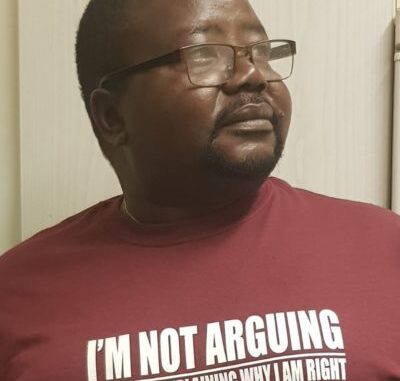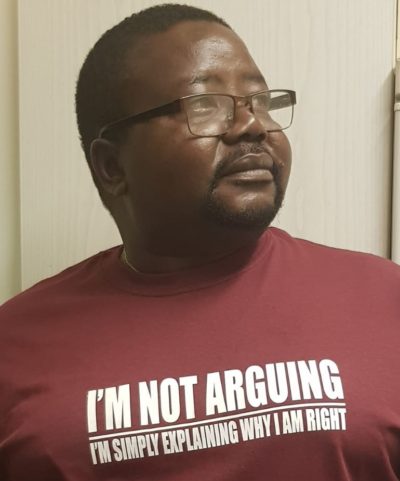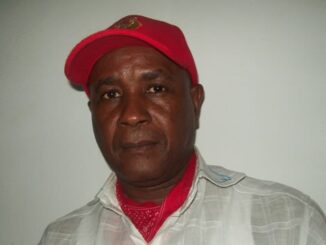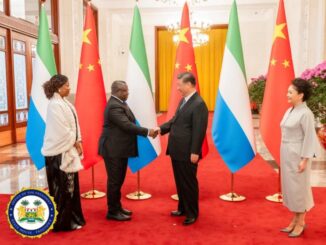
When Social Media Is Not Media.
One of the most inspired innovations of the 21st century is Social Media. Among the obvious benefits, it has transformed the global community into a global village. But above all it has changed ownership of the media. The public was at the mercy of the whims and discretions of media empires and their emperors. Editors and publishers determined the palatability of what was served on the media menu. By so doing, not only did they decide what and when to read but served as king makers of their communities. They even hypnotised their loyal readers into their own thinking. It’s no wonder, it is called the “Fourth Estate”, in addition to the other arms of government including the “Executive, legislative and Judiciary”.

But social media has to a large extent wrestled that power from mainstream conventional media powerhouses today. The news is no longer a patented item or monopoly for the moguls. They no longer determine what, when or where they can disseminate the news. Social media has become the “equalizer”, giving a voice to those who are willing to engage in trading this perishable product; sometimes even before events happen. Interestingly, news items have become everybody’s; but what is everybody’s is nobody’s. And that is where the ownership and direction of travel of social media comes under scrutiny.
It goes without saying that Social Media has been the greatest contributor to free speech and freedom of the press. It has become the main vehicular traffic on the information highway. But just like any highway, its safe use will depend on its own Highway Codes. In media terms, such Highway Codes could involve self-regulation, which is nigh impossible. But any form of censorship could be an anathema to free speech and the very essence of social media. At the click of a button or flick of a screen, anyone can become a journalist, a commentator, media personnel or critic.
But is it any wonder that the emergence of “desktop journalism” is attracting the worst of “gutter journalism”, which is making massive inroads into mainstream media? Can that be good for society? With the world sinking under the wealth of available information, it is increasingly giving birth to poverty of thought, attention and wisdom.
Is the social media a curse or blessing?
In addition to promoting free speech, social media has led to transparency. Despite its wonderful new innovations to the media world, there is no doubt that in the wrong hands, social media has its dark sides to it. Research shows that social media is significantly contributory to a lot of mental health issues among its users today. We are virtually living our lives on social media, right in the glare of public consumption. Nothing bad with that. Unfortunately, some people are now living in fear of the perception they unintentionally create of themselves. With transparency, some say that privacy is dead and social media holds the smoking gun. It continues to consume the mind and hence the life of its users. In my day, people get angry if someone read their diary. Today, they unfriend you if you don’t “like” their posts or respond with an emoji. Oh dear.
Our country has not been left out of this new phenomenon. Like any other media community, our social media platforms have become the nest house for information, disinformation, misinformation, conspiracies and all sorts. That’s the way of the world today. There are many renowned media outlets with platforms for audience participation. With media giants like Radio Democracy and many others, it’s refreshing to see the audience commenting, responding, and interacting with other listeners live on show. This gives a surreal feel to the news and a glimpse into how news items are consumed by the audience. They offer courts of public opinion, where cases of national interests are tried and ruled on. Social media platforms tend to act as the barometer of society and thermometer of public opinion. Listeners and participants run running commentaries in chat boxes, and by so doing become part of the news. You get a feel for functional dissemination of the news as people give various and alternating responses and comments.
Sadly, it is social media’s very essence to promote free speech, that has become a bother to many. People enjoy and partake in free speech but increasingly, there is a visible preponderance of INTOLERANCE on our social media platforms. Today, we have people who feel free to express their right to freedom of speech but lack the temperament to TOLERATE alternative views. It is so sad, so sad, to see fellow Sierra Leoneans trading insults on social media, simply because they disagree with, or have alternative views from the other. This is very common among people on opposite sides of the political aisle. Topical issues get lost in the myriad of invectives and in translation.
This increasing level of intolerance is alarming and regrettable. And these are the same people who condemn governments which suppress freedom of speech with arbitrary arrests. If such people cannot tolerate the views of others without resorting to insults, you wonder what these same people would do if they had the power to demonstrate such intolerance if they had political clout. These are people engage in verbal thuggery, disguised as education or intellect.
Should social media platform handlers moderate their sites?
Thesierraleonetelegraph.com is one of, if not the most read online newspaper. It runs a forum for its readers, allowing them to comment on issues topical to our country and in the news. But unlike others, there are house rules or highway codes to follow. Unlike other platforms, this forum does not allow or encourage personal attacks. Readers who insult others are warned and later blocked out if they persist. What is not allowed on the forum are hateful speeches, incitement, abuse of persons etc. Users who engage in personality attacks, insults and incitement, to name but a few are warned in the first place and later banned if they fail to comply with the house rules. All comments are moderated by the editor and published if they remain within the ambits of decency. Even the editor is criticised by readers at times and such criticisms get published.
No one is advocating censorship. Any speech that condemns a free press usually comes from tyrants. By virtue of its nature, the internet will treat censorship as a malfunction; it goes against the very essence of the information highway. It would be a tragedy to even imply that these social media platforms should be censored, because censorship might not even promote good behaviour in people. But with insults becoming the currency and refuge of the incompetent, should social media outlet handlers do more to sanitise their corridors?
Sadly, and very sadly, the minority resort to using vulgar and unprintable insults at others, especially when others express alternative views. This is unacceptable and should be discouraged at all cost. Social media has the potential to destroy itself, if this allowed to fester in our community. One would expect these social media platforms to have guidelines and house rules for users. The benefits of social media are numerous. We saw Donald Trump banned from twitter because he did not follow the rules or played by the community spirit. He was considered a danger to society. It is one thing to demand freedom of speech but an entirely different thing on what we do with it.
In Sierra Leone, we can conduct our won people’s parliament. Social media offers us our own law courts, police force and all the machinery of government. It gives the opportunity for the big conversation. But in doing so, we should be able to listen in action. We do not need to agree on anything or everything. But we need to respect and acknowledge others’ views, without resorting to “Mammy Cuss”. We don’t need to cuss, to be heard.
Our lives begin to end on the day we become silent on the things that matter (MLK)
Merry Christmas and a happy New Year to All.
See you in 2022……. Insha Allah.
Abdulai Mansaray.



